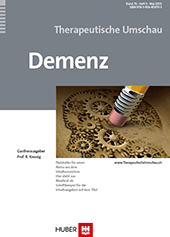Die Urteilsfähigkeit aus rechtlicher Sicht – insbesondere ihre Prüfung durch den Notar
Abstract
Das Problem der Urteilsfähigkeit bzw. Urteilsunfähigkeit und der in diesem Zustand abgeschlossenen Rechtsgeschäfte nimmt angesichts der erhöhten Lebenserwartung und der steigenden Zahl von Demenzerkrankungen zu. Im vorliegenden Beitrag wird die Urteilsfähigkeit aus rechtlicher Sicht erläutert. Gemäß Art. 16 ZGB ist urteilsfähig jede Person, der nicht wegen ihres Kindesalters, infolge geistiger Behinderung, psychischer Störung, Rausch oder ähnlicher Zustände die Fähigkeit mangelt, vernunftgemäß zu handeln. Urteilsunfähigkeit setzt demnach objektiv das Vorliegen eines der umschriebenen Zustände voraus, der in subjektiver Hinsicht zur Folge hat, dass die Fähigkeit zu vernunftgemäßem Handeln nicht gegeben ist. Die Urteilsfähigkeit ist dabei immer relativ zu verstehen, d. h. sie ist rechtlich mit Blick auf ein konkretes Geschäft und für einen konkreten Zeitpunkt zu beurteilen. Beweismäßig wird grundsätzlich die Urteilsfähigkeit vermutet. Im Rahmen eines Beurkundungsverfahrens hat der Notar die Urteilsfähigkeit der Parteien zu prüfen, wobei es sich indessen um eine bloß summarische, beschränkte Prüfung handelt. Ist die Urteilsfähigkeit umstritten, so ist zur abschließenden, autoritativen Beurteilung allein der Zivilrichter zuständig.
The issue of the capacity of judgement or the lack thereof and the validity of legal actions performed in such conditions will become more and more important considering the longer life expectancy and the increasing number of people with diseases like dementia. This paper will discuss the capacity of judgement from a legal point of view. According to article 16 of the swiss civil code a person is capable of judgement within the meaning of the law if he or she does not lack the capacity to act rationally by virtue of being under age or because of a mental disability, mental disorder, intoxication or similar circumstances. Therefore, the incapacity of judgement requires the existence of one of the aforementioned conditions (objective aspect) which have to result in the lack of capacity to act rationally (subjective aspect). The capacity of judgement is relative and must always be evaluated within a given context, i. e. the capacity of judgement has to be confirmed or refuted for a specific transaction at a specific time. By law, the capacity of judgement is assumed (statutory presumption) and the opposite has to be proven. As part of a notarial procedure the capacity of judgement has to be verified by the notary public, although only in a brief and limited manner. If the capacity of judgement is disputed, only the competent civil judge has the power to render a legally binding judgement.



